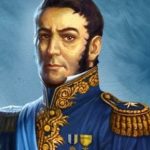Edward (born 1894) was the oldest son of George V and Mary of Teck. He should have become King of Great Britain & Northern Ireland, and Emperor of India. He did become Prince of Wales in 1911, and was popular with the people. As a child and youth he maintained a rigid and distant relationship with his parents, who would not allow him to attend an ordinary school, not even Eton or Harrow. He could never have gone toWinchester because he was not intelligent enough.
Young Edward found the customs and etiquette of Court life boring and outmoded. He disliked the clothes, grandeur and the inability to say what you thought. He liked the girls very much though, and had had several mistresses by the time he was eighteen, all young married women.
By twenty he threw himself into a round of parties in private houses, parties in louche nightclubs, parties on yachts. He smoked constantly. As Evelyn Waugh said of the Twenties – “All those vile bodies.”
On occasions he took his responsibilities as Prince of Wales seriously, such as when he visited the homes of starving miners in the Welsh valleys, but his view were mainly reactionary. He referred to ‘those bloody suffragettes’ – the women trying to secure a vote for women using violent methods. He took the side of the officers in ‘The Curragh Mutiny’ in 1914, but then he could hardly have done anything else.
His life was dissolute, worsened by heavy and constant drinking. He spoke badly in public about ‘the Jews’ and ‘the Indians’ (whom one day he could come to rule). He thought highly of Hitler in the Thirties and went to meet him, something organised by the then German Ambassador in London, a champagne salesman called Ribbentrop (q.v.). He said of Hitler, “I rather like the little man they’ve got now in Germany,” after 1933. The ‘little man’ quotation rankled with the German authorities, partly because their little man was taller than the Prince of Wales.
He became King in January 1936 when his father George V died. George never wanted his eldest son to follow him, but was persuaded by Queen Mary that the boy would stop being ‘Prince Hal’ when he got the crown, and become ‘like Henry V of Agincourt (q.v.)’. Edward was king without a coronation from January to December. According to chroniclers of the period he showed little or no interest in affairs of state. But he did get the servants in the royal palace to set the clocks at the correct time. His father had ordered all clocks to be set ten minutes fast, so that nobody would ever be late at mealtimes.
Edward was most pre-occupied with his latest affair, again with a married woman, this time a twice divorced one, coming from the American upper class, and living with her latest husband, a rather nice fellow called Ernest Simpson. Mrs Simpson (Wallis Warfield) very nearly destroyed the British monarchy, probably without realising what her affair with the Prince of Wales meant. She was determined to rid herself of her third husband (Simpson, a businessman) so that she could marry Edward and become Queen of England. But several persons were having nothing of it, including the Archbishop of Canterbury (Temple), several press lords, Prime Minister Stanley Baldwin, almost the entire nobility except Perry Brownlow, the Director General of the BBC etc., and especially the vibrant young wife of Edward’s younger brother ‘Bertie’ Duke of York.
Lady Elizabeth Bowes-Lyon was made of the sternest stuff of all, and she knew that the British would not be ruled by a king with a twice-divorced American wife as queen. She also knew that if Edward abdicated, her pathetic, chain-smoking, stammering but very good husband and father ‘Bertie’ whose only training (he always said), was as a naval officer, would have to take the crown. The Duchess of York would have preferred a simple life in the country with her pleasant husband and charming daughters.
Effectively, Edward abdicated, amidst national shock and a shrieking press. ‘Bertie’ became George VI, a good king and a good thing, and Lady Elizabeth became his Queen Elizabeth. Edward rushed to France, Wallis got her decree nisi in an Ipswich court, and the couple married in a ceremony in France which not one member of the British royal family attended. George VI made his disgraced older brother Duke of Windsor, and Wallis became the Duchess, but without the prefix HRH.
When Edward’s ‘little man’ invaded France Edward and Wallis escaped to Portugal, but Winston Churchill rescued him and shipped him off to govern the Bahamas throughout the War (1942 – 45). He was well out of the way, as shortly after his marriage in France he had, without permission, gone to see Hitler again. He died in 1972, his wife rather later.











Leave A Comment